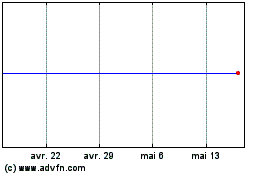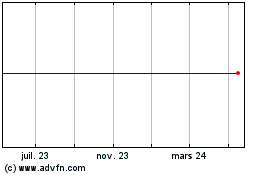Singapore Escalates Fight Against Spread of False Information on Social Media
09 Mai 2019 - 4:44PM
Dow Jones News
By Jake Maxwell Watts
SINGAPORE -- In an effort to combat misinformation online,
Singapore has passed a law requiring Facebook Inc., Alphabet Inc.'s
Google, Twitter Inc. and other social-media companies with regional
headquarters here to rapidly issue corrections when users post
items the government deems false.
The law, passed by Parliament late Wednesday, goes further than
existing or proposed restrictions in many other countries by giving
power directly to politicians to distinguish truth from falsehoods.
Lawmakers dismissed criticism from technology companies and rights
groups, and had earlier solicited public input on the legislation
in a series of hearings.
Singapore's leaders have said the Southeast Asian city-state is
especially vulnerable to such abuse of social media because of a
diverse religious and racial mix. Echoing concerns raised by
politicians and governments in other countries, the island nation's
leaders have accused tech companies of not doing enough to rein in
damaging content.
The law's passage capped two days of debate. The legislation
received the support of 72 members of Parliament, dominated by the
People's Action Party, which has governed the city-state
uninterrupted since independence in 1965. The opposition, which
holds just nine seats, voted against the law, while three other
members abstained.
The Protection from Online Falsehoods and Manipulation Bill
empowers the government to order tech companies to circulate
corrections on content ministers deem to be false or misleading and
potentially harmful to the public interest. In some instances, this
would be required even if the offending content didn't originally
appear on the companies' platforms, and it could also apply to
traditional media.
Fines of up to one million Singapore dollars (US$733,600) can be
issued for noncompliance. Other penalties include methods to cut
off funding and advertising for offending publishers. The courts
will decide on appeals, but compliance from tech companies is
required within a matter of hours, far faster than any appeals
process would take.
Debates "should be based on a foundation of truth, foundation of
honor, and foundation where we keep out the lies. That's what this
is about," Minister for Law K. Shanmugam said in Parliament.
The government has said the law is structured to ensure rapid
action against damaging content before it goes viral. Relying on
the courts or another intermediary would be too slow, the
government has said.
After the law's passage, Google called for a full, transparent
public consultation. "We remain concerned that this law will hurt
innovation and the growth of the digital information ecosystem,"
Google said, adding that misinformation is a challenging issue that
it is working hard to address.
Twitter said it wants to promote healthy conversation online but
hopes that concerns raised by interested parties will be addressed
by the government in implementation. Facebook said it is committed
to reducing the spread of misinformation and recently launched a
fact-checking service in Singapore, but expressed concern about the
breadth of the government's powers.
The Asia Internet Coalition, a tech-industry group, said its
members were committed to engaging with the Singapore government
and it would work to assist with the law's implementation.
Rights advocates condemned the law, saying it gives a government
with a record of using legislation to stifle political opposition
power to be arbiter of truth. The law "will have a chilling effect
on internet freedom throughout Southeast Asia," Human Rights Watch
said.
The government has dismissed allegations that the law could be
used to stifle political dissent and denied targeting
opponents.
Where countries have enacted similar legislation, most have
focused on content that breaks existing hate-speech laws rather
than that deemed to be false. Last year, France passed a law to
empower judges to remove false content during election campaigns,
and Germany introduced legislation that imposes prison sentences
and fines for failure to remove hate speech.
Write to Jake Maxwell Watts at jake.watts@wsj.com
(END) Dow Jones Newswires
May 09, 2019 10:29 ET (14:29 GMT)
Copyright (c) 2019 Dow Jones & Company, Inc.
Twitter (NYSE:TWTR)
Graphique Historique de l'Action
De Juin 2024 à Juil 2024

Twitter (NYSE:TWTR)
Graphique Historique de l'Action
De Juil 2023 à Juil 2024
